- Administrator
- Albums and Singles
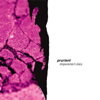 Newest addition to the most sparsely-populated of Ground Fault's threeseries headings (series III, the "harsh noise" category), Shipwrecker's Diarycertainly justifies its placement. Providence's Prurient (aka DominickFernow) is a learned student in the brutal school of power electronics,but one whose intentions lie more in the head-cleaning, catharticcorner of the genre than in the kind sensationalism practiced by othernotables like Deathpile, who has recorded for Fernow's own HospitalProductions. The noise on Shipwrecker's tends to occupy ahigh-frequency range with layers of crisp static making a thick cushionfor most of the other activity and keeping the whole from sinking intothe doom-y sludge that is a popular pitfall for others working in thismedium. No sounds reach truly cringe-inducing, spectrum-piercinglevels, making the disc highly listenable following a short adjustmentperiod. Once inside, there's enough nuance and careful construction tomake for a very rewarding noise record. It's clear that Fernow favorsnot the guttural thrash of people like Deathpile or the explicit,confrontational side of the genre, as embodied (still) by Whitehouse.Instead, he works with less-concentrated, incremental noise, usingspeed and a more gradual, swarming approach to achieve his desiredeffect, which is every bit as powerful as his peers' though less likelyto get bogged down in bad posturing. It's interesting to try and dividethe 33-minute Shipwrecker's into two conceptual halves. Thefirst eight tracks offer the disc's grittiest noise, crumbling staticwaves and washes that develop patiently enough to sound almost capableof being touched or traced with the hand. This is unrelenting, physicalnoise, and Fernow knows it, naming each track after a part of the body,starting with "Shin" and moving up to "Elbow." There is, despite thesheer mass of sound bombarding the ears, a level of comfort availablein the "material" quality of the noise during this half. However with"June 19," Prurient moves on, breaking the connection with the body andallowing the sound to bottom out considerably, leaving only a scorchedwhine and weighted hiss, allying him more with the current crop ofMidwestern homemade noisemakers than with the stoic "power" camp.Following the track's interlude, Fernow's familiar face returns for thedisc's most harrowing section, a 4-track blitzkrieg run through wildlypunctuated bursts, quickly modulated pitch shifts and blasted vocalyelps. For titles, the artist returns to the body, but is now localizedat the head ("Earlobe," "Jaw"), suggesting to me that, from the basephysicality of Shipwrecker's first half, Prurient has moved nowto a site of deeper mental anguish, hence the obsession with the headand the tortured quality of the music in the latter half. In myunderstanding, "June 19" arrives midway as bitter introduction to theworld of the mind, like a repressed memory, foregrounding the nakedemotion that arrives with the disc's closing tracks, two unalteredanswering machine messages left by a young girl. They are late-nightlove messages, innocent, tender, and certainly in contrast with thehellish vision that preceded them. And while some may find Fernow'sconclusion too "neat" or explicit as a thematic rendering, these tracksdo help establish what was suspected before, that Prurient is, atleast, one of the more introspective or "personal" noise artistsworking today, if not the kinder, gentler new face of powerelectronics.
Newest addition to the most sparsely-populated of Ground Fault's threeseries headings (series III, the "harsh noise" category), Shipwrecker's Diarycertainly justifies its placement. Providence's Prurient (aka DominickFernow) is a learned student in the brutal school of power electronics,but one whose intentions lie more in the head-cleaning, catharticcorner of the genre than in the kind sensationalism practiced by othernotables like Deathpile, who has recorded for Fernow's own HospitalProductions. The noise on Shipwrecker's tends to occupy ahigh-frequency range with layers of crisp static making a thick cushionfor most of the other activity and keeping the whole from sinking intothe doom-y sludge that is a popular pitfall for others working in thismedium. No sounds reach truly cringe-inducing, spectrum-piercinglevels, making the disc highly listenable following a short adjustmentperiod. Once inside, there's enough nuance and careful construction tomake for a very rewarding noise record. It's clear that Fernow favorsnot the guttural thrash of people like Deathpile or the explicit,confrontational side of the genre, as embodied (still) by Whitehouse.Instead, he works with less-concentrated, incremental noise, usingspeed and a more gradual, swarming approach to achieve his desiredeffect, which is every bit as powerful as his peers' though less likelyto get bogged down in bad posturing. It's interesting to try and dividethe 33-minute Shipwrecker's into two conceptual halves. Thefirst eight tracks offer the disc's grittiest noise, crumbling staticwaves and washes that develop patiently enough to sound almost capableof being touched or traced with the hand. This is unrelenting, physicalnoise, and Fernow knows it, naming each track after a part of the body,starting with "Shin" and moving up to "Elbow." There is, despite thesheer mass of sound bombarding the ears, a level of comfort availablein the "material" quality of the noise during this half. However with"June 19," Prurient moves on, breaking the connection with the body andallowing the sound to bottom out considerably, leaving only a scorchedwhine and weighted hiss, allying him more with the current crop ofMidwestern homemade noisemakers than with the stoic "power" camp.Following the track's interlude, Fernow's familiar face returns for thedisc's most harrowing section, a 4-track blitzkrieg run through wildlypunctuated bursts, quickly modulated pitch shifts and blasted vocalyelps. For titles, the artist returns to the body, but is now localizedat the head ("Earlobe," "Jaw"), suggesting to me that, from the basephysicality of Shipwrecker's first half, Prurient has moved nowto a site of deeper mental anguish, hence the obsession with the headand the tortured quality of the music in the latter half. In myunderstanding, "June 19" arrives midway as bitter introduction to theworld of the mind, like a repressed memory, foregrounding the nakedemotion that arrives with the disc's closing tracks, two unalteredanswering machine messages left by a young girl. They are late-nightlove messages, innocent, tender, and certainly in contrast with thehellish vision that preceded them. And while some may find Fernow'sconclusion too "neat" or explicit as a thematic rendering, these tracksdo help establish what was suspected before, that Prurient is, atleast, one of the more introspective or "personal" noise artistsworking today, if not the kinder, gentler new face of powerelectronics. Read More
- Administrator
- Albums and Singles
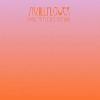 "Celestial Highway" is a massive, stomping heavy metal riff, a bighairy acid-drenched slab of fuzzy blues cribbed from the Blue Cheerhandbook. The jacked-up shredding that twists around the centralrhythmic stomp is directly inspired by the third-eye Satanic soloing ofGlenn Tipton and Tony Iommi. That shit keeps cycling around, pulsatingfuzzy tendrils of bombastic riffage, hairy to the Nth degree, liftingup to the clouds on a silver machine of over-amped guitar wreckage. Andthen it repeats. Over and over. For nearly an hour. Matthew Bower'snewest album under the Skullflower banner earns its title. Not for thepatience-challenged, Exquisite Fucking Boredomtests the limits of repetition. Applying the techniques of theavant-garde repetitive techniques of Steve Reich and Terry Riley tonoisy psych-rock has been tried before, most memorably on Acid MothersTemple's reading of Riley's monumental In C. But I must confessthat Bower has done them one better with the four-part suite of"Celestial Highway," which sets a new record for trance-rock. Even moreexasperating that Spinal Tap's wanky Jazz Odyssey, Skullfloweris pushing the envelope of acceptability in terms of musical content. Ithink it pays off brilliantly, but whether or not the average listenerwill agree depends upon their temperament. The nuanced production is byColin Potter, the genius engineer and producer behind some of NurseWith Wound's best work. Potter's technique is to add sheets ofcompounding noise run-off to each successive riff, alternately buryingthe cyclical guitars in a pile of audio rubble, or uncovering andhighlighting them by pushing out the borders of distortion. It's notfor the faint of heart, but over the course of the album, it ascends toa hypnotic level of transcendence. Like a lot of ethnic and avant-gardetrance music, the eventual goal is for the listener to ignore thecentral repeating theme, which fades like white noise to thebackground, focusing instead on the gradual evolution of sound, or inthe case of Skullflower's album, the compounding noise, distortion anddecay that creep in over the course of the four-part suite. Patience isa virtue, and in the case of Exquisite Fucking Boredom, it's avirtue that eventually rewards the listener with some of the mostbizarre and unconventional "stoner rock" yet conceived.
"Celestial Highway" is a massive, stomping heavy metal riff, a bighairy acid-drenched slab of fuzzy blues cribbed from the Blue Cheerhandbook. The jacked-up shredding that twists around the centralrhythmic stomp is directly inspired by the third-eye Satanic soloing ofGlenn Tipton and Tony Iommi. That shit keeps cycling around, pulsatingfuzzy tendrils of bombastic riffage, hairy to the Nth degree, liftingup to the clouds on a silver machine of over-amped guitar wreckage. Andthen it repeats. Over and over. For nearly an hour. Matthew Bower'snewest album under the Skullflower banner earns its title. Not for thepatience-challenged, Exquisite Fucking Boredomtests the limits of repetition. Applying the techniques of theavant-garde repetitive techniques of Steve Reich and Terry Riley tonoisy psych-rock has been tried before, most memorably on Acid MothersTemple's reading of Riley's monumental In C. But I must confessthat Bower has done them one better with the four-part suite of"Celestial Highway," which sets a new record for trance-rock. Even moreexasperating that Spinal Tap's wanky Jazz Odyssey, Skullfloweris pushing the envelope of acceptability in terms of musical content. Ithink it pays off brilliantly, but whether or not the average listenerwill agree depends upon their temperament. The nuanced production is byColin Potter, the genius engineer and producer behind some of NurseWith Wound's best work. Potter's technique is to add sheets ofcompounding noise run-off to each successive riff, alternately buryingthe cyclical guitars in a pile of audio rubble, or uncovering andhighlighting them by pushing out the borders of distortion. It's notfor the faint of heart, but over the course of the album, it ascends toa hypnotic level of transcendence. Like a lot of ethnic and avant-gardetrance music, the eventual goal is for the listener to ignore thecentral repeating theme, which fades like white noise to thebackground, focusing instead on the gradual evolution of sound, or inthe case of Skullflower's album, the compounding noise, distortion anddecay that creep in over the course of the four-part suite. Patience isa virtue, and in the case of Exquisite Fucking Boredom, it's avirtue that eventually rewards the listener with some of the mostbizarre and unconventional "stoner rock" yet conceived.Read More
- Administrator
- Albums and Singles
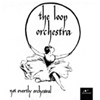 The first interesting thing about Not Overtly Orchestralis the black-and-white photo on back of the disc, framing tworeel-to-reel tape decks, fastened to a bare wall about 20 feet apartand running a visibly stretched loop of tape across the expanse.Whether or not the six members of The Loop Orchestra actually performusing loops this large does not determine the success of their music;however, a healthy love of loops, odd juxtapositions, distortedlayerings, and nostalgia might create the perfect predisposition. LoopOrchestra are from Australia, with members who've played in theoft-overlooked experimental/industrial/newwave outfit Severed Heads,and like that band's more challenging 12" platters, Not Overtly Orchestralis heavy on clipped, semi-nauseous repetitions, loops meant to definethemselves as loops first and foremost, with any mood-making orillusionism purely secondary. The Orchestra work exclusively withreel-to-reel decks, a process that all but guarantees their primitivetechnique, by which various loops are slowly layered, fading in and outto create tracks that progress (depending on tact and intention) in ausually fluid, ever-changing fashion. While they lack most of theHeads' mechanical rigidity and long-windedness, Loop Orchestra'sslippery sense of humor and interest in all things arcane andincompatible seems directly related to their fellow countrymen. I amhesitant to compare this disc to other loop-centric, antiquatedtechnologists like (the now obvious) Philip Jeck because the appealhere feels more esoteric, more heavily reliant on the kitsch factor.Tape-loop composition is a tried, age-old technique, making The LoopOrchestra worthy of praise mainly because of the increasingly bizarrenature of the sounds used. The opening "Son of Not Overtly Orchestra"establishes its initial mood with a choir of hazy stringed instrumentswhich are slowly and nervously assimilated into a factory noisescape,eventually locking into submission as a few wailing guitars initiatethe track's calamitous end. The track acts as a pleasant preamble tothe weirdness that will dominate the rest of the disc. "Radiophony" isa 15-minute piece created from, and in tribute to, the BBC RadiophonicWorkshop's archival recordings. The Orchestra approaches this sourcematerial the way Stock, Hausen, & Walkman might, isolating thestrangest of the Workshop's creations, from abstract animal voices towonderfully dated space-age trumpet sounds and a library's worth ofgrainy, analogue atmospherics, stretching and piling each bit of tapeinto a surreal tour-de-force that those bearded Brits could never havedreamed up. The disc's real gem, though, is "Profiles," the longest ofthe four pieces and one that clarifies the Orchestra's devotion to campand all things peculiar. It is a vast collage of vocal sounds, rangingfrom piercing screams to breathy grunts and warped speech, piecedtogether in a staggering, drug-damaged spew, rife with churning aquaticnoise and other field captures. The track is a perfect summation of thegroup's interests, further into leftfield than they initially appearand completely capable of breathing freshness into tired styles andobsolete devices.
The first interesting thing about Not Overtly Orchestralis the black-and-white photo on back of the disc, framing tworeel-to-reel tape decks, fastened to a bare wall about 20 feet apartand running a visibly stretched loop of tape across the expanse.Whether or not the six members of The Loop Orchestra actually performusing loops this large does not determine the success of their music;however, a healthy love of loops, odd juxtapositions, distortedlayerings, and nostalgia might create the perfect predisposition. LoopOrchestra are from Australia, with members who've played in theoft-overlooked experimental/industrial/newwave outfit Severed Heads,and like that band's more challenging 12" platters, Not Overtly Orchestralis heavy on clipped, semi-nauseous repetitions, loops meant to definethemselves as loops first and foremost, with any mood-making orillusionism purely secondary. The Orchestra work exclusively withreel-to-reel decks, a process that all but guarantees their primitivetechnique, by which various loops are slowly layered, fading in and outto create tracks that progress (depending on tact and intention) in ausually fluid, ever-changing fashion. While they lack most of theHeads' mechanical rigidity and long-windedness, Loop Orchestra'sslippery sense of humor and interest in all things arcane andincompatible seems directly related to their fellow countrymen. I amhesitant to compare this disc to other loop-centric, antiquatedtechnologists like (the now obvious) Philip Jeck because the appealhere feels more esoteric, more heavily reliant on the kitsch factor.Tape-loop composition is a tried, age-old technique, making The LoopOrchestra worthy of praise mainly because of the increasingly bizarrenature of the sounds used. The opening "Son of Not Overtly Orchestra"establishes its initial mood with a choir of hazy stringed instrumentswhich are slowly and nervously assimilated into a factory noisescape,eventually locking into submission as a few wailing guitars initiatethe track's calamitous end. The track acts as a pleasant preamble tothe weirdness that will dominate the rest of the disc. "Radiophony" isa 15-minute piece created from, and in tribute to, the BBC RadiophonicWorkshop's archival recordings. The Orchestra approaches this sourcematerial the way Stock, Hausen, & Walkman might, isolating thestrangest of the Workshop's creations, from abstract animal voices towonderfully dated space-age trumpet sounds and a library's worth ofgrainy, analogue atmospherics, stretching and piling each bit of tapeinto a surreal tour-de-force that those bearded Brits could never havedreamed up. The disc's real gem, though, is "Profiles," the longest ofthe four pieces and one that clarifies the Orchestra's devotion to campand all things peculiar. It is a vast collage of vocal sounds, rangingfrom piercing screams to breathy grunts and warped speech, piecedtogether in a staggering, drug-damaged spew, rife with churning aquaticnoise and other field captures. The track is a perfect summation of thegroup's interests, further into leftfield than they initially appearand completely capable of breathing freshness into tired styles andobsolete devices. Read More
- Administrator
- Albums and Singles
 Two former members of Arab Strap strike out on their own as Sons andDaughters, and if their debut is any indication they'll be just finefrom here on out. Adele Bethel and David Gow are not necessarilywell-known for their time touring with the Strap, but with theirfriends and bandmates they craft their own brand ofcountry/folk/blues/rock romp and stomp that's just quirky enough tokeep me coming back for more. With other singer and guitar player ScottPaterson, Bethel makes rather lovely harmonies over tunes that varyfrom all-out bombastic knee-slappers to tributes to Johnny Cash. It'stantamount to the best bar band I've heard in my life, where I'd be aregular singing along to all the songs, cursing the tourists who don'tknow what glory they're talking through. That's not to diminish theirskills any, as any bar would be lucky to have an ensemble like thisin-house. From the outset, I was ready to dance and shake with a beerin one hand and a girly in the other, as the steady rhythm of "Fight"has all the feel of a do-si-do gone wrong. "The lines are drawn, thisis getting worse" immediately precedes a call-out of "Uh huh uh huh,"and it's destined for call and response at any show. Bethel has a liltin her voice that just beckons, but there's always a hint of somethingmuch more that can be unleashed at any moment. Paterson, then, is theperfect foil, all accented awkward thuds but still perfectly suited tothe sounds beneath. It's the frenetic energy, that hesitation of what'snext, that brings about the real power in this band. The tempos of thesongs are very similar, but they take off in wildly differentdirections, so it's of no concern. Just like that, though, the recordis over: it's seven songs of easy aggression and power harmonies, andhooks in my head for days.
Two former members of Arab Strap strike out on their own as Sons andDaughters, and if their debut is any indication they'll be just finefrom here on out. Adele Bethel and David Gow are not necessarilywell-known for their time touring with the Strap, but with theirfriends and bandmates they craft their own brand ofcountry/folk/blues/rock romp and stomp that's just quirky enough tokeep me coming back for more. With other singer and guitar player ScottPaterson, Bethel makes rather lovely harmonies over tunes that varyfrom all-out bombastic knee-slappers to tributes to Johnny Cash. It'stantamount to the best bar band I've heard in my life, where I'd be aregular singing along to all the songs, cursing the tourists who don'tknow what glory they're talking through. That's not to diminish theirskills any, as any bar would be lucky to have an ensemble like thisin-house. From the outset, I was ready to dance and shake with a beerin one hand and a girly in the other, as the steady rhythm of "Fight"has all the feel of a do-si-do gone wrong. "The lines are drawn, thisis getting worse" immediately precedes a call-out of "Uh huh uh huh,"and it's destined for call and response at any show. Bethel has a liltin her voice that just beckons, but there's always a hint of somethingmuch more that can be unleashed at any moment. Paterson, then, is theperfect foil, all accented awkward thuds but still perfectly suited tothe sounds beneath. It's the frenetic energy, that hesitation of what'snext, that brings about the real power in this band. The tempos of thesongs are very similar, but they take off in wildly differentdirections, so it's of no concern. Just like that, though, the recordis over: it's seven songs of easy aggression and power harmonies, andhooks in my head for days.Read More
- Administrator
- Albums and Singles
 Exotica has never quite grown beyond its initial renaissance ofinterest in the early 90's. Even among its most avid fans andcollectors, it's still considered something of a novelty: mildlydiverting, but ultimately disposable musical kitsch. Recent attempts atresurrecting exotica by John Zorn and Tipsy have been a little tooreverent for their own good - studied facsimiles of 1950's exotica byMartin Denny or Les Baxter - largely academic with zero soul orsincerity.
Exotica has never quite grown beyond its initial renaissance ofinterest in the early 90's. Even among its most avid fans andcollectors, it's still considered something of a novelty: mildlydiverting, but ultimately disposable musical kitsch. Recent attempts atresurrecting exotica by John Zorn and Tipsy have been a little tooreverent for their own good - studied facsimiles of 1950's exotica byMartin Denny or Les Baxter - largely academic with zero soul orsincerity.Hipshot
I've long felt that exotica deserves recognition as one ofpop music's first forays into the integration of cutting-edge studiotechniques, emerging hi-fi stereo effects and cross-genrehybridization. Exotica's melding of crisply reproduced, hi-fidelitycocktail jazz with exotic instrumentation, tribal drumming, oceansounds, bird calls and a galaxy of ambient textures was years ahead ofits time. Not until the dawn of psychedelia did pop music ever againattempt to be this evocative, using the studio as an instrument totransport the listener to other worlds.
Mike Cooper's Rayon Hulais the first truly sincere attempt at 21st century exotica I've comeacross, a cool breeze of an album, experimental but eminentlylistenable. Cooper is a British expatriate, and for the past 40 yearshe has played blues, folk and improv with some of the Britain's bestand brightest. For this album, he turns his attention to the strange,misunderstood world of exotica, specifically the Hawaiian cool jazz ofArthur Lyman. Rayon Hula is billed as a dual tribute to Lyman, the incomparable musician behind classics like Taboo and Hawaiian Sunset,and Ellery Chun, the inventor of the Hawaiian shirt. If the premisesounds dangerously kitschy, the album certainly does not.
Constructedfrom a series of looped samples from Arthur Lyman's records, Cooperoverdubs his own lap steel guitar, electronics and field recordings.The result is a densely layered album, where complex arrangements andgently circulating piano melodies float over off-kilter, irregularrhythms. Care has been taken to arrange all of the elements in aslightly askew fashion, so that accidental convergences occur betweenthe whimsical, hypnotic loops and Cooper's added electronic noises andcurling steel guitar. It's a marvelously under-produced album, as ifCooper knew just when to let go and let the music stand. Noisy, atonalpassages give way to warm, tropical rushes of melody. Backwards-trackedmemories cycle through forgotten vacation photographs of lei makers,coconut stands, midnight luaus with synchronized hula dancers gesturingon the blue sand shores of the Pacific.
It's a shame that Cooper'sHipshot Records has no distribution to speak of. To buy the album, Ihad to send cash to Cooper at his home studio in Rome and waitpatiently for the CD-R to arrive in its flimsy Photoshop sleeve. It'struly a DIY operation, but Rayon Hula is the first entirely rewarding work of modern exotica, so it's more than worth the wait.
Read More
- Administrator
- Albums and Singles
 Sam Beam, the man behind Iron & Wine, has changed his approach onthis, his second full-length album. The previous album featured Beam onhis own, playing the instruments (primarily guitar and banjo) andrecording at home on a 4-track. Our Endless Numbered Daysfinds him employing the help of the musicians who accompany him in liveperformances, playing a wider variety of instruments, and recording ina studio. Although this allows Beam to broaden his horizons musically,it seems that in the process his new material suffers from being lesspersonal and more watered-down. Though Beam tends to wear his gentlyfolky influences on his sleeve (i.e. Nick Drake and Tim Buckley), hesucceeds in making the style into something which is unique. "On YourWings," which kicks the album off to a promising start, soon peters outinto the wimpy "Naked As We Came," which is musically along the linesof I&W's first records, but overpowered by maudlin lyrics.Unfortunately, Our Endless Numbered Days is hard pressed torecover the initial spark with which it began. That is not to say thatthe album is wholly without merit. "Teeth in the Grass" has an earthycharm, and "Each Coming Night" is beautiful, albeit brief return toform. Sadly, however, these are the exception and not the rule.
Sam Beam, the man behind Iron & Wine, has changed his approach onthis, his second full-length album. The previous album featured Beam onhis own, playing the instruments (primarily guitar and banjo) andrecording at home on a 4-track. Our Endless Numbered Daysfinds him employing the help of the musicians who accompany him in liveperformances, playing a wider variety of instruments, and recording ina studio. Although this allows Beam to broaden his horizons musically,it seems that in the process his new material suffers from being lesspersonal and more watered-down. Though Beam tends to wear his gentlyfolky influences on his sleeve (i.e. Nick Drake and Tim Buckley), hesucceeds in making the style into something which is unique. "On YourWings," which kicks the album off to a promising start, soon peters outinto the wimpy "Naked As We Came," which is musically along the linesof I&W's first records, but overpowered by maudlin lyrics.Unfortunately, Our Endless Numbered Days is hard pressed torecover the initial spark with which it began. That is not to say thatthe album is wholly without merit. "Teeth in the Grass" has an earthycharm, and "Each Coming Night" is beautiful, albeit brief return toform. Sadly, however, these are the exception and not the rule. Read More
- Administrator
- Albums and Singles
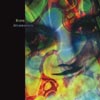 This 1990 live recording documents an interesting moment in the history of one of the U.S.?s most interesting and long-standing avant-garde collectives. Under the early tutelage of Chris Cutler, the Colorado-based group has, since 1979, produced a wealth of music rooted in the early admirer/member's progressive legacy, an elusive, genre-bending approach with a particular emphasis on rustic folk-pop and dark, frayed psychedelia.Anomalous
This 1990 live recording documents an interesting moment in the history of one of the U.S.?s most interesting and long-standing avant-garde collectives. Under the early tutelage of Chris Cutler, the Colorado-based group has, since 1979, produced a wealth of music rooted in the early admirer/member's progressive legacy, an elusive, genre-bending approach with a particular emphasis on rustic folk-pop and dark, frayed psychedelia.Anomalous
As with previous like-minded collectives, the studio environment has become, with time, an integral part of Biota's creative direction. While the group's core instrumentation is uniquely acoustic (including accordion, hurdy-gurdy, saxophone, viola, and the more exotic curtal, crumhorn, and shawm), their music requires a considerable amount of keen electronic processing to produce its dense, disorienting, often surrealist currents. There is no typical Biota sound; their records map a sound world that is impossible to summarize, touching on woody baroque pop, free jazz, contemporary chamber music, and ambient soundtracking, with plenty of extra space left to the band's always-inventive, never-gratuitous forays into industrial-styled noise. The constants that do exist in their output appear only in the music's more confusing qualities: the murky sheen that keeps even the most immediate or accessible phrases at a mysterious distance, the conscious effort to make the percussion slightly and perpetually off-beat, and the wobbly perch of particular instruments in the mix, hovering a few inches from their comfortable timbres as if ghosts of themselves. Much of the power and uniqueness in Biota's music comes from very specific in-studio manipulation of the various instruments, in ways that retain the earthen vigor of acoustic sound to the exclusion of all other comfortable associations surrounding its creation or place with the larger collage. For Musique Actuelle, their first live event in nine years, the band essentially recreated their studio setup onstage, utilizing no samples, tapes, or synthetic sound of any kind. The only amplified instruments are the electric bass and guitar, with all instruments played untreated from the stage, their acoustic sounds gathered via microphones and processed by three band members in real time. The resulting work is site-specific, composed for this particular event alone, and its holds up surprisingly well in comparison to Biota's previous studio recordings. The performance divides into four movements, spanning haunting, dirge-like chamber pieces, Celtic jig-inspired shuffles, a raucous, saxophone-led psych driver, and one massive, slow-burning hulk of ambient sound which ushers in the fourth movement's climactic and conclusive ascension into noise. Sound processing remains a continual presence throughout, at its most subtle supplying simple delay and pitch-bend effects, and at its peak of involvement, transforming the entire performing group into a writhing, fractured mess. The immediacy of the band's unique instrumental palette often gives the music a false simplicity, something quickly denied as skillful electronic manipulations uncover hidden layers of sampled sound or warp specific passages entirely. The complexity of Musique Actuelle is unbelievable for a live recording and almost as staggering when taken at face value. Biota's traversal of stylistic boundaries is in no way arrogant or awkward, and the group's ability, less than halfway through their long life, to transcend a base "fusionist" approach, creating music that sounds just as singular as their recent efforts, is remarkable.
Read More
- Michael Patrick Brady
- Albums and Singles
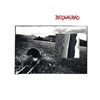 Though the policies of containment kept the political and geographicalboundaries of free thought and fascist oppression clearly defined inthe early 1980's, the strength of the iron curtain was not enough toprevent ideas from crossing into and beyond the bloc. Begnagrad iscomprised of members who were all exposed to the burgeoning punk andprogressive rock music scenes in their hometown of Ljubljana, Slovenia,then part of communist Yugoslavia. The band is the product of fivedaring multi-instrumentalists who combined Alpine and Eastern Europeanfolk concepts with modern rock, free-jazz influences and a distinctsense of whimsy. Their self-titled album, originally released in 1982,is a fascinating example of the creative minds and wonderful ideas thatflourished in less pleasant times and circumstances. The tracks theyproduced are impressively intricate, with numerous instruments spinningoff around each other in a complex weave of sound and rhythm. "Pjan ska/ Drinking One" begins with a swirling arrangement, accordions andwoodwinds etching out those alpine peaks as they rise and fall beforelaunching into a full steam ahead horn sprint, as if James Chance werefronting a Bohemian (geographically, that is) dance ensemble. Finallyspliced with the enthusiastic mock yodeling of the band members, "Pjanska" spends itself in an amusing gasp of grinning energy. "Bo Ze (CeBo) / All's Good (Maybe)" is a relentlessly charming track, whoseloping, oscillating bass rhythm inspires the urge to make jaunty,whirling circles, arms linked with another in the midst of coy, flirtydance. What makes Begnagradsuch an engaging, satisfying listen is the pure joy that emanates fromthe music, a sense of deeply passionate humanism that can often be lostin experimental, fusion, and avant-garde music. This feeling isexemplified in two live bonus tracks that document the band on aEuropean tour. "Tazadnatanova / Thelastnewone" is an intense,rollicking piece that is driven by a furious punk rock energy, squallswith saxophone riffage and sputters about on jagged, post-punk guitars,but ultimately is fully entrenched in the warmth and togetherness ofthe band's folk-troubadour roots. The band launches into a frantic jig,pushing themselves and their audience to clap along and dance withmanic energy. The crowd can be heard clapping, whistling, hooting, andpouring themselves heart and soul into the song. Potentially thehappiest record I have heard in a very long while, Beganagradmanages to be progressive by utilizing the past, finding the originalmotivator for musical expression: to entertain, to bring peopletogether, and make them feel as if they are involved in somethingbeautiful.
Though the policies of containment kept the political and geographicalboundaries of free thought and fascist oppression clearly defined inthe early 1980's, the strength of the iron curtain was not enough toprevent ideas from crossing into and beyond the bloc. Begnagrad iscomprised of members who were all exposed to the burgeoning punk andprogressive rock music scenes in their hometown of Ljubljana, Slovenia,then part of communist Yugoslavia. The band is the product of fivedaring multi-instrumentalists who combined Alpine and Eastern Europeanfolk concepts with modern rock, free-jazz influences and a distinctsense of whimsy. Their self-titled album, originally released in 1982,is a fascinating example of the creative minds and wonderful ideas thatflourished in less pleasant times and circumstances. The tracks theyproduced are impressively intricate, with numerous instruments spinningoff around each other in a complex weave of sound and rhythm. "Pjan ska/ Drinking One" begins with a swirling arrangement, accordions andwoodwinds etching out those alpine peaks as they rise and fall beforelaunching into a full steam ahead horn sprint, as if James Chance werefronting a Bohemian (geographically, that is) dance ensemble. Finallyspliced with the enthusiastic mock yodeling of the band members, "Pjanska" spends itself in an amusing gasp of grinning energy. "Bo Ze (CeBo) / All's Good (Maybe)" is a relentlessly charming track, whoseloping, oscillating bass rhythm inspires the urge to make jaunty,whirling circles, arms linked with another in the midst of coy, flirtydance. What makes Begnagradsuch an engaging, satisfying listen is the pure joy that emanates fromthe music, a sense of deeply passionate humanism that can often be lostin experimental, fusion, and avant-garde music. This feeling isexemplified in two live bonus tracks that document the band on aEuropean tour. "Tazadnatanova / Thelastnewone" is an intense,rollicking piece that is driven by a furious punk rock energy, squallswith saxophone riffage and sputters about on jagged, post-punk guitars,but ultimately is fully entrenched in the warmth and togetherness ofthe band's folk-troubadour roots. The band launches into a frantic jig,pushing themselves and their audience to clap along and dance withmanic energy. The crowd can be heard clapping, whistling, hooting, andpouring themselves heart and soul into the song. Potentially thehappiest record I have heard in a very long while, Beganagradmanages to be progressive by utilizing the past, finding the originalmotivator for musical expression: to entertain, to bring peopletogether, and make them feel as if they are involved in somethingbeautiful. Read More
- Administrator
- Albums and Singles
 Underground hip-hop allstars cLOUDDEAD either win people over in excess or lose them completely, and their sophomore full-length isn't likely to change that much. There is no compromise in this music: there is only with or against this interesting lot.
Underground hip-hop allstars cLOUDDEAD either win people over in excess or lose them completely, and their sophomore full-length isn't likely to change that much. There is no compromise in this music: there is only with or against this interesting lot.
Combining indie folk musical sensibilities with unique rhyme delivery and odd subject matter and effects, each track bubbles and builds towards a common understanding or ultimate light-bulb moment. It's not easy to stomach, and certainly doesn't go with the traditional concept of hip-hop, but it truly is forward-thinking and a worthy effort. I was listening and couldn't escape the mental image of sitting in front of the TV, watching as a child in complete disbelief, not knowing the words to express the emotions I felt. Catchy beats and melodies abound on Ten, though not always in the same place, and from time to time I heard complete brilliance. "The Keen Teen Skip" features a fantastic sample, then a multitude of voices speaking as one on such bizarre lines as "youngsters today are not prepared to buy plants or collect stamps" as a dirty beat and ringing bells provide the impetus to continue. Eventually the chants become harmonized simple singing, and skips and repeated words create awkward breaks, like an idea struggling to get out of the brain. And so it goes, the perfect formula that gets the point across through juvenile-sounding voices and simple tones and instruments. Sometimes it doesn't get there — like on "Rhymer's Only Room," a chant and march that grated on my nerves — but there's a consistent feel, a commentary on society that cannot be denied or even understood on occasion ("Strawberry in an ostrich throat"?). "Son of a Gun" and "Rifle Eyes" address real issues with an off-kilter bend, rapid-firing and driving the point into the mind with freight train force. That they get these points across through such an odd combination is commendable, and I certainly hope that their detractors are few. This is the new style, and may the collaborators and peers reign.
samples:
Read More
- Administrator
- Albums and Singles
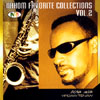 Don't ever feel afraid to strike up a conversation with afriend/associate who's not from your country about food of theircountry, a reward might be in the future. I was talking to an Ethiopianperson I knew about Ethiopian food and she told me that I must try aplace that's sort of off the beaten path, somewhat hidden and in an oddlocation in Boston, a place I had been relatively familiar with buthave never realized a good restaurant existed there. I had been to acouple other Ethiopian places in Boston, one I thought was dreadful butone I was quite fond of, however, when you get a recommendation from anEthiopian (or an Indian about Indian food, or Japanese, Mexican,etc,...), you take them up on it. So I took Jessica out for herbirthday and the food that night was fantastic. The place was full withplenty of Ethiopian patrons all talking with the staff like they werefamily, which is always a good sign. The music being played wasexcellent and by the time this one song came on, I had to get up andfind out what it was. The slap-bass and looped drum patterns weren'tmuch unlike old stuff from 23 Skidoo and I was completely in a trance.I went to the bar and the bartender wrote it down in a language Icouldn't read and told me to take the sheet of paper to the South EndFood Emporium and hand them the sheet of paper. The following day I didand ended up with this CD. It's not completely unexpected from a foodmart: the sound quality is pretty shoddy (cassette tape "breathing"sounds can be heard), the packaging looks less than legal, and there'sno web site coming up with the aforementioned URL. However, that songwhich originally stole my heart, "Wey Arada" (listen below) was wellworth the trek and worthy enough to share. The disc is a collection oftunes from this blind singer, he carries a saxophone but it's hard tohear a real sax on the disc, as a number of the songs are poorlyproduced with cheap synths. The vocal style is completely un-Western,but not dissimilar to singers of the Middle East while the music isundoubtedly African in nature, with numerous interwoven timesignatures, upbeat guitars, and keyboard instruments playing prettytones. The songs are bright and springy for the most part and it shouldgo without saying that I've got absolutely no clue what's being sung. Acouple standout tracks, like the hypnotic "Tzta," is nearly ten minutesof sheer beauty which oddly enough has to get faded out (I wonder howlong the band actually went on playing the repeated bars).Unfortunately without the web site for the label working, I've got noinformation to share about the musician nor any idea how to get itelsewhere, so, for those who find it as captivating I did, a quest inyour own city might be in order.
Don't ever feel afraid to strike up a conversation with afriend/associate who's not from your country about food of theircountry, a reward might be in the future. I was talking to an Ethiopianperson I knew about Ethiopian food and she told me that I must try aplace that's sort of off the beaten path, somewhat hidden and in an oddlocation in Boston, a place I had been relatively familiar with buthave never realized a good restaurant existed there. I had been to acouple other Ethiopian places in Boston, one I thought was dreadful butone I was quite fond of, however, when you get a recommendation from anEthiopian (or an Indian about Indian food, or Japanese, Mexican,etc,...), you take them up on it. So I took Jessica out for herbirthday and the food that night was fantastic. The place was full withplenty of Ethiopian patrons all talking with the staff like they werefamily, which is always a good sign. The music being played wasexcellent and by the time this one song came on, I had to get up andfind out what it was. The slap-bass and looped drum patterns weren'tmuch unlike old stuff from 23 Skidoo and I was completely in a trance.I went to the bar and the bartender wrote it down in a language Icouldn't read and told me to take the sheet of paper to the South EndFood Emporium and hand them the sheet of paper. The following day I didand ended up with this CD. It's not completely unexpected from a foodmart: the sound quality is pretty shoddy (cassette tape "breathing"sounds can be heard), the packaging looks less than legal, and there'sno web site coming up with the aforementioned URL. However, that songwhich originally stole my heart, "Wey Arada" (listen below) was wellworth the trek and worthy enough to share. The disc is a collection oftunes from this blind singer, he carries a saxophone but it's hard tohear a real sax on the disc, as a number of the songs are poorlyproduced with cheap synths. The vocal style is completely un-Western,but not dissimilar to singers of the Middle East while the music isundoubtedly African in nature, with numerous interwoven timesignatures, upbeat guitars, and keyboard instruments playing prettytones. The songs are bright and springy for the most part and it shouldgo without saying that I've got absolutely no clue what's being sung. Acouple standout tracks, like the hypnotic "Tzta," is nearly ten minutesof sheer beauty which oddly enough has to get faded out (I wonder howlong the band actually went on playing the repeated bars).Unfortunately without the web site for the label working, I've got noinformation to share about the musician nor any idea how to get itelsewhere, so, for those who find it as captivating I did, a quest inyour own city might be in order. Read More
- Administrator
- Albums and Singles
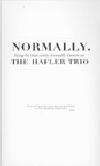 The voice of Blixa Bargeld of Einsturzende Neubauten is the rawmaterial from which Andrew McKenzie constructed the sounds on the twodiscs comprising Normally.Disc one begins with silence. Silence is merely sound that lingers justbeyond the threshold of audibility. Silence is unpotentiated space.Sound is the dissipation and usurpation of silence. When sound beginsto gradually seep into the silence of Normally, the experience is akin to the onset of a hallucination. For Normally,McKenzie is not interested in language; any whispers or screamscontributed by Mr. Bargeld are rendered indecipherable, and henceforthaffect the listener on a purely subconscious, subliminal level. This istellingly similar to the practice of talismanic magic, where theconscious desire is sublimated through a series of transformations intoirretrievably esoteric codes and diagrams, bizarre correspondences andperverted anagrams. Magic and ritual are McKenzie's primary motivationson Normally. Like the hallucinatory state, where the mind issometimes freed to make sympathetic connections between thought andmanifestation, so too the sounds on Normally contribute to anunraveled head-state in which synchronicities are the rule rather thanthe exception. At various times during my first listen to disc one, aslayers upon layers of meditational aumgns are gradually compounded, Iheard the unmistakable sounds of descending piano scales, mewlingkittens, distant muffled screams, even the sound of my front doorviolently being forced open. These were phantasms, no doubt, catalyzedby the abstract drones and ghostly monasterial choirs that McKenziesculpts. By the 28-minute mark, the piece has taken on the majesticintensity of Gyorgi Ligeti's haunting choral works, sounding like theinfinite vibratory intonations cascading from the void of space. Disctwo, or "Sphotavado," deals primarily with the breath. Just as AleisterCrowley noted after a lifetime of study devoted to the tantricmeditation, there is no better purgative than pranayama (breathcontrol), and no better way to enervate the aspirant than therepetition of mantra. Using Bargeld's mantric recitations and breathyintonations, McKenzie provides a series of distinct, dynamic passagesover the 65-minutes of the disc. Each passage fades in and out likebreathing, and each takes the listener to a more remote, rarefiedstrata of magical conception. From the gentle, reedy abstractions ofthe opening passage all the way to the serpentine, metallic Kundalinibrain-swipes of the final breath. At high volumes, many of theseprocessed sounds vibrate portions of the ear canal in an unexpectedway. I found that by moving my head back and forth, or changing myposition in the room, I could radically change the experience oflistening to "Sphotavado." McKenzie, therefore, has created a raresound sculpture which can be actively engaged and changed by thelistener. The enigmatic packaging and accompanying foldout bookletcreate a remarkable series of "blinds" that distract and mislead evenas they lay bare the central theme of Normally; words createvibrations; vibration is the result of sound; sound is the articulationof existence; existence is created by a single word, vibrated.
The voice of Blixa Bargeld of Einsturzende Neubauten is the rawmaterial from which Andrew McKenzie constructed the sounds on the twodiscs comprising Normally.Disc one begins with silence. Silence is merely sound that lingers justbeyond the threshold of audibility. Silence is unpotentiated space.Sound is the dissipation and usurpation of silence. When sound beginsto gradually seep into the silence of Normally, the experience is akin to the onset of a hallucination. For Normally,McKenzie is not interested in language; any whispers or screamscontributed by Mr. Bargeld are rendered indecipherable, and henceforthaffect the listener on a purely subconscious, subliminal level. This istellingly similar to the practice of talismanic magic, where theconscious desire is sublimated through a series of transformations intoirretrievably esoteric codes and diagrams, bizarre correspondences andperverted anagrams. Magic and ritual are McKenzie's primary motivationson Normally. Like the hallucinatory state, where the mind issometimes freed to make sympathetic connections between thought andmanifestation, so too the sounds on Normally contribute to anunraveled head-state in which synchronicities are the rule rather thanthe exception. At various times during my first listen to disc one, aslayers upon layers of meditational aumgns are gradually compounded, Iheard the unmistakable sounds of descending piano scales, mewlingkittens, distant muffled screams, even the sound of my front doorviolently being forced open. These were phantasms, no doubt, catalyzedby the abstract drones and ghostly monasterial choirs that McKenziesculpts. By the 28-minute mark, the piece has taken on the majesticintensity of Gyorgi Ligeti's haunting choral works, sounding like theinfinite vibratory intonations cascading from the void of space. Disctwo, or "Sphotavado," deals primarily with the breath. Just as AleisterCrowley noted after a lifetime of study devoted to the tantricmeditation, there is no better purgative than pranayama (breathcontrol), and no better way to enervate the aspirant than therepetition of mantra. Using Bargeld's mantric recitations and breathyintonations, McKenzie provides a series of distinct, dynamic passagesover the 65-minutes of the disc. Each passage fades in and out likebreathing, and each takes the listener to a more remote, rarefiedstrata of magical conception. From the gentle, reedy abstractions ofthe opening passage all the way to the serpentine, metallic Kundalinibrain-swipes of the final breath. At high volumes, many of theseprocessed sounds vibrate portions of the ear canal in an unexpectedway. I found that by moving my head back and forth, or changing myposition in the room, I could radically change the experience oflistening to "Sphotavado." McKenzie, therefore, has created a raresound sculpture which can be actively engaged and changed by thelistener. The enigmatic packaging and accompanying foldout bookletcreate a remarkable series of "blinds" that distract and mislead evenas they lay bare the central theme of Normally; words createvibrations; vibration is the result of sound; sound is the articulationof existence; existence is created by a single word, vibrated.Read More